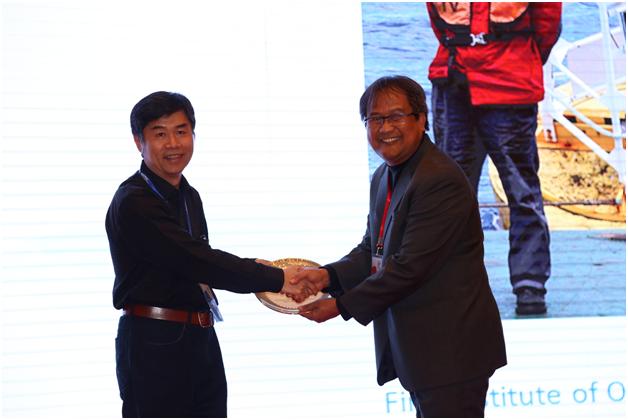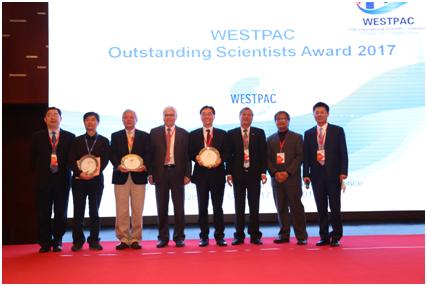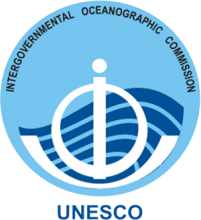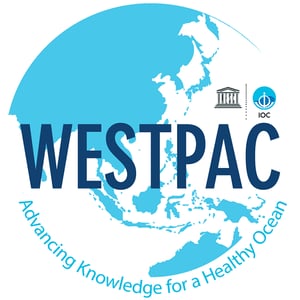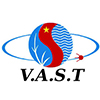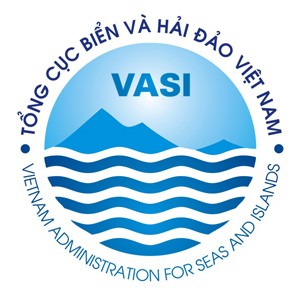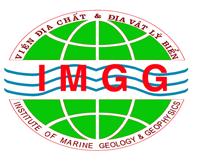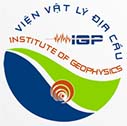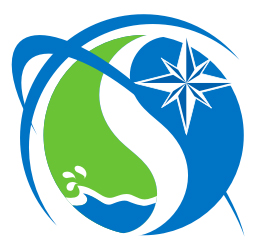Dr Weidong Yu (China), Dr Youn-Ho Lee (Republic of Korea) and Dr Teruhisa Komatsu (Japan) were awarded WESTPAC Outstanding Scientist 2017 on 17 April 2017 at the 10th WESTPAC International Scientific Conference, Qingdao, China.
Initiated during the 9th WESTPAC International Scientific Symposium in 2014 in Vietnam, the WESTPAC Outstanding Scientist Award was established in recognition and appreciation of those marine scientists for their long term dedication to regional marine science development and cooperation in the region. The selection process for the WESTPAC Outstanding Scientist 2017 had been conducted since November last year with broad engagement of WESTPAC Office, Officers and WESTPAC Advisory Group.
Let us congratulate the WESTPAC Outstanding Scientist of 2017.
Dr Weidong Yu, First Institute of Oceanography, State Oceanic Administration of China
Dr Weidong Yu received his Ph.D. degree on Physical Oceanography from the Chinese Academy of Science. With his research focusing on ocean observation, tropical ocean-atmosphere interaction and climate dynamics, especially in the Indian Ocean, he has been dedicating over two decades of service in Marine Science and Numerical Modeling, and the Center for Ocean and Climate Research at the First Institute of Oceanography. Throughout his professional career, Dr Yu has been devoting himself to intensively explore ocean process and climate together with promoting bilateral and regional research cooperation on Ocean process and Climate. He started his regional collaboration by joining CLIVAR-GOOS Indian Ocean Panel (IOP) which initiated a discussion on the Indian Ocean Observing System (IndOOS) and later on led to a successful implementation of IndOOS contributing to a significant improvement of Indian Ocean related data. With CLIVAR-GOOS, he also served as an IOP co-chair from 2010-2013. Via a bilateral research cooperation, he collaborated with leading Indonesian Oceanographer from the Ministry of Marine Affairs and Fisheries (KKP), the Agency for the Assessment and Application of Technology (BPPT), the Indonesian Institute of Sciences (LIPI) and Indonesian Agency for Meteorological, Climatological and Geophysics BMKG, he conducted the first cruise in Indian Ocean in 2007. At that time, he deployed one subsurface mooring south of Java to monitor upwelling and coastal current with another surface-buoy “Bailing” deployed several years later. His efforts in strengthening regional research collaboration have been even more intensified in the past 10 years with his role as the Director of Center for Ocean and Climate Research. He has closely engaged and committed to WESTPAC as one of the leaders for the establishment of Southeast Asian Regional Global Ocean Observing System (SEAGOOS). Dr Yu also serves as a pilot project leader on Monsoon Onset Monitoring and its Social and Ecosystem Impact “MOMSEI” under SEAGOOS project. He has been a WESTPAC Advisory Group member since 2015. Dr Yu has published a number of papers, technical reports and books with almost 60 of his papers were often cited (google scholar citations).
2017 WESTPAC Outstanding Scientist Award, Dr Weidong Yu (from the left)
receives his award from Dr Zainal Arifin, Indonesia
Dr Teruhisa Komatsu, Yokohama College of Commerce, Japan
For over 40 years of his life, Dr Komatsu has been strongly committing to Marine Ecology. He was interested in influence of seaweed beds on marine environment at the very beginning of his research path. After finishing his Ph.D. in Agriculture and Fishery Science from Kyoto University with an emphasis on a Sargassum bed on marine environments, and he received a post-doctoral fellowship from French Government Scholarship for High-Class Scientist where he learned the importance of mapping seagrass and seaweed beds for conservation. For several years, he has been dedicating to developed remote sensing methods for efficient seagrass and seaweed beds mapping using acoustics and optics. In 1997, he adopted narrow multibeam sonar for the first time to map seagrass and seaweed beds. In 2008, he and one of his student successfully applied satellite remote sensing for seagrass mapping and developed a simple and efficient radiometric correction method for mapping seagrass and seaweed beds (bottom Reflectance Index: BRI) which have been a suitable model to implement in the WESTPAC Region as it is user-friendly and provides strong outputs. His knowledge and experience have made valuable contribution to marine science and academic in the region. He has published more than 100 scientific paper in English and French. Other than pursuing his scientific research goals, he has been energetically providing public services both at national and international levels. Dr Komatsu has been instrumental in the development of marine science capacity in the region. Under the IOC/WESTPAC Capacity Development, he has strongly support the Capacity Development Strategy and implementation by involving in the 1st meeting of the Intersessional Working Group for the Development of IOC Capacity Development Strategy in 2013 and organizing International Feasibility Study Workshop Towards the Establishment of an IOC Regional Training and Research Center in Japan (2014) to advocate the importance of IOC-RTRC in the WESTPAC region. Together with the WESTPAC Chair, he further pushed forward the official recognition of IOC-RTRC in the IOC Capacity Development Strategic Plan at the IOC General Assembly. In addition, Dr Komatsu has served as a WESTPAC project leader on Ocean Remote Sensing (ORSP) since 2010 and has been continuously promoting regional marine science development and research collaboration via the project and other IOC and WESTPAC activities.
Dr Teruhisa Komatsu from Yokohama College of Commerce, Japan
Dr Youn-Ho Lee, Korea Institute of Ocean Science and Technology, Republic of Korea
Holding his Ph.D. in Marine Biology from the University of California, USA, Dr Youn-Ho Lee has been devoting himself to molecular phylogeny, population genetics, and biodiversity of marine organisms. After spending almost 10 years of his early career in the USA, Dr Lee moved to his motherland, the Republic of Korea and worked as a senior researcher at the Korea Institute of Ocean Science and Technology (KIOST) where he, later on, took several roles in the senior administration board; as a director of International Cooperation Department, and recently as a leader of the State Development Session. Along with his long year services in science and administration at KIOST, he has also been actively contributing to academic services, as a professor of the University of Science and Technology and an adjunct professor for Ocean Sciences and Technology.
For almost 30 years in the field of molecular marine science, he has been significantly contributing to conservation and sustainable use of the marine biological resources at national and regional levels as demonstrated through over 80 publications including peer-reviewed papers and book chapters. In particular, with WESTPAC, he has been strongly advocating marine science cooperation among countries in the region. He plays a leading role as the Principal Investigator for ‘Enhancement the capacity for species identification and genetic analysis on marine organisms in the coral reef ecosystems in the Western Pacific’ so-called DRMREEF project and successfully established the WESTPAC Marine Biodiversity Portal Site consisting of approximately 1,000 data of corals, crustaceans, echinoderms, cnidarian, mollusca, mesozoic and fish species from the participating countries with links to relevant national databases and websites. In addition, he has been an active steering member of several other regional projects of WESTPAC under the umbrella of “Marine Biodiversity, Healthy Ecosystems, Seafood Security and Safety. Dr Lee has also served as a WESTPAC Vice-Chair and Advisory Group Member in the past 5 years. Under his leadership, the regional ocean science knowledge, capacity development and technology transfer have been tremendously enhanced. Because of his outstanding performance, he has received a number of awards and recognitions at national and international levels.
Dr Youn-Ho Lee (from the left) receives his award from Dr Vo Si Tuan, Vietnam


